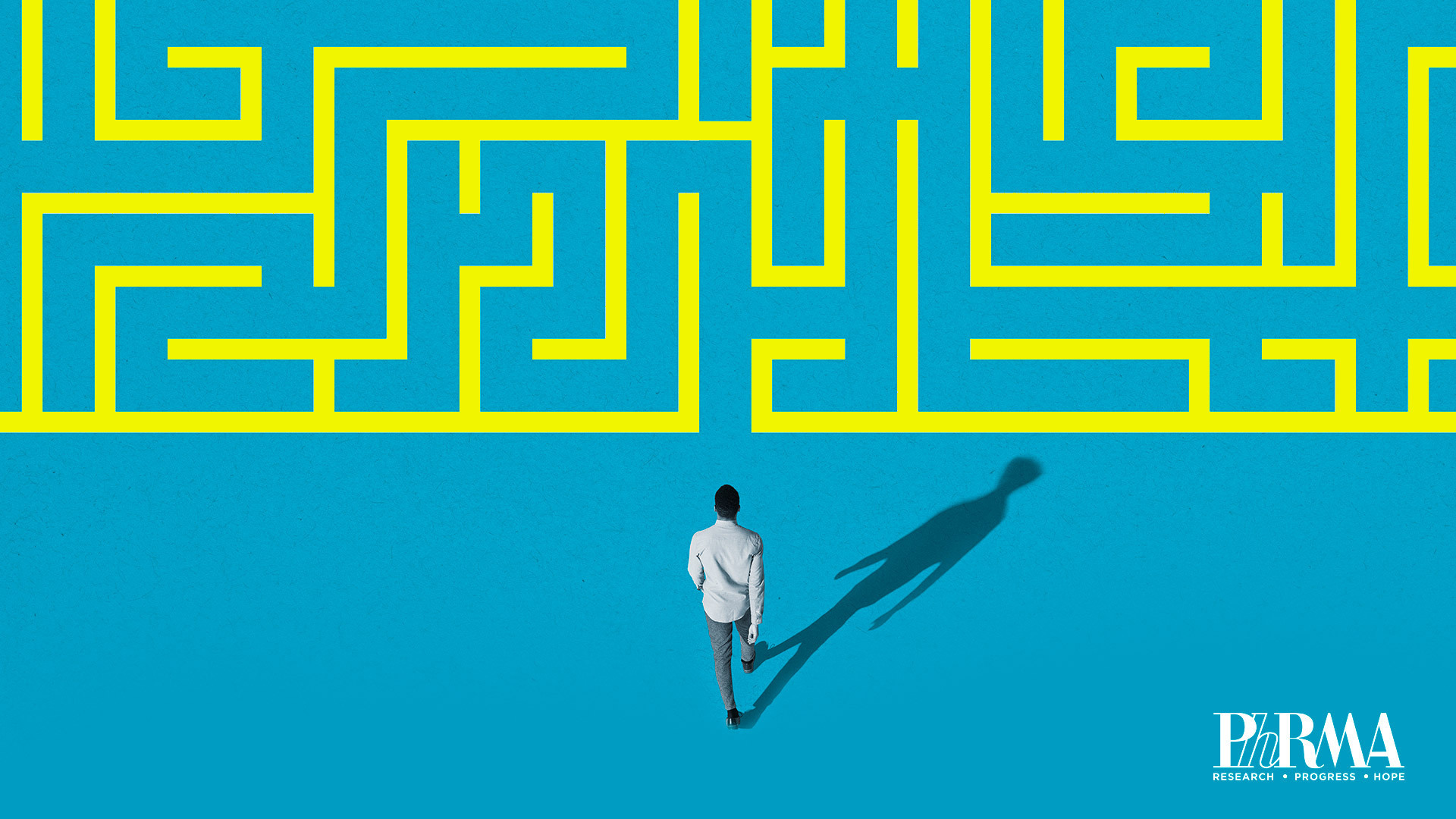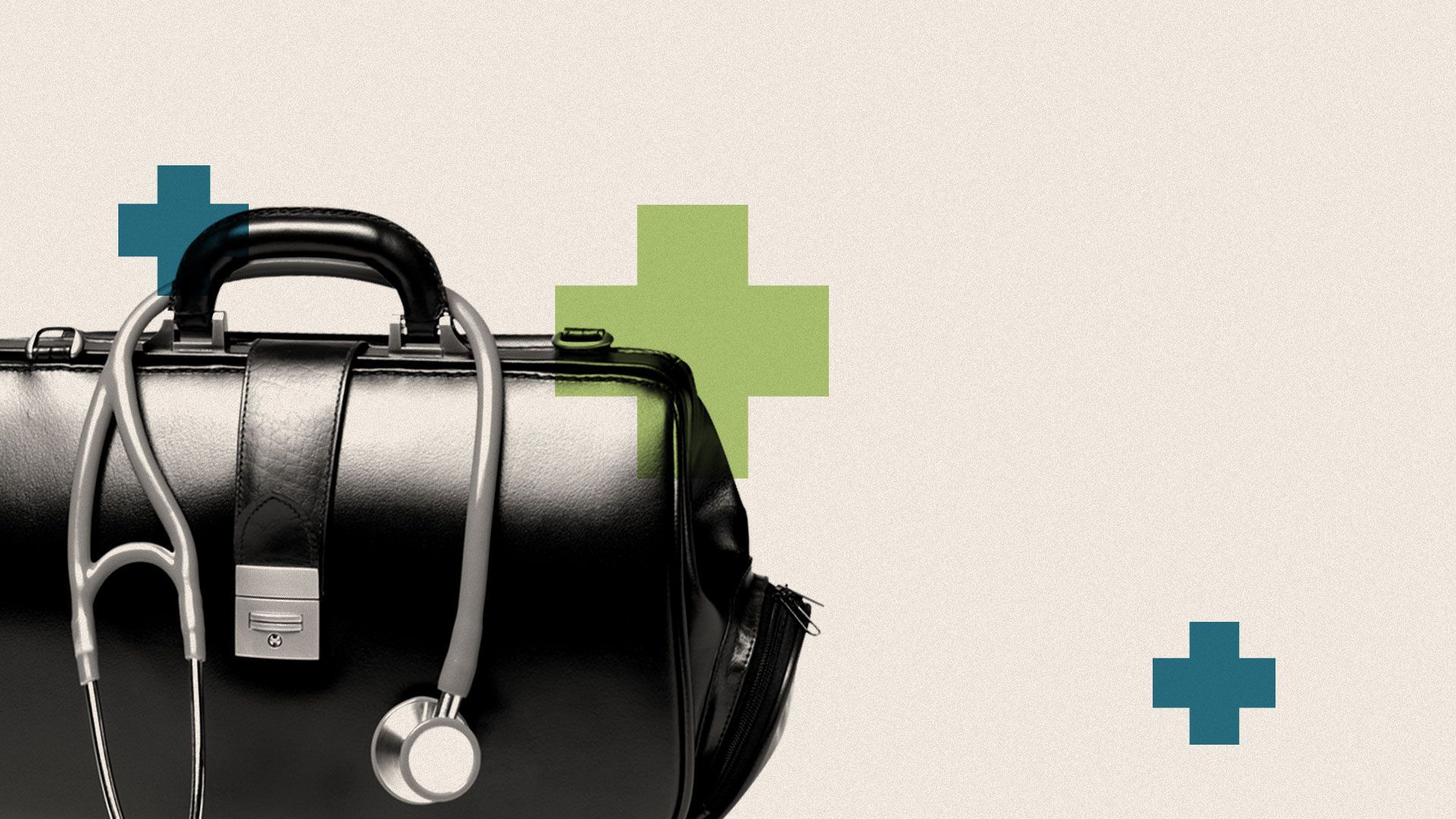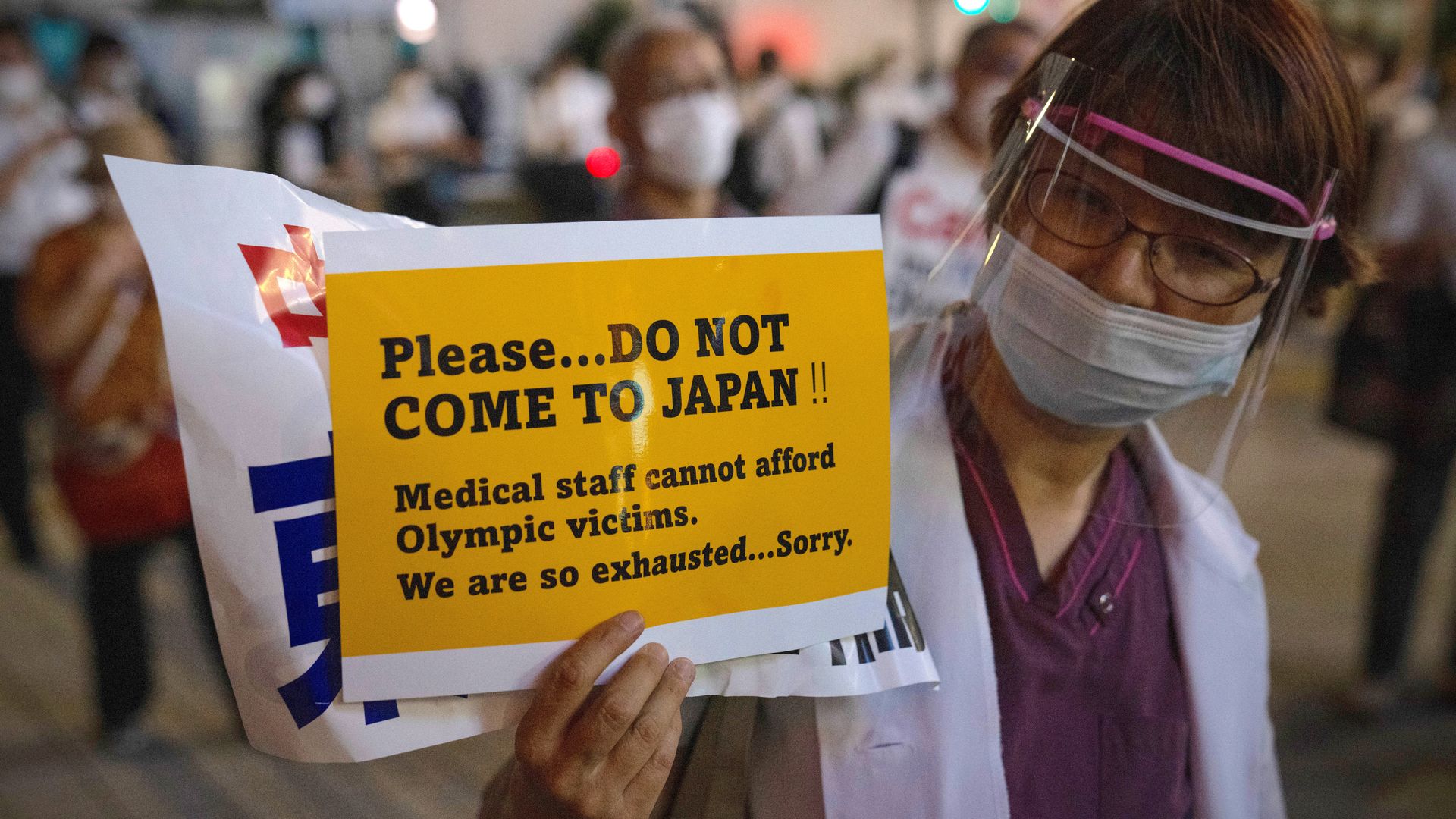| |
| |
| |
| Presented By PhRMA |
| |
| Axios Vitals |
| By Tina Reed ·Jun 24, 2021 |
| Good morning! Today's newsletter is 721 words, or a 3-minute read. Situational awareness: Biogen's newly approved Alzheimer's drug and its $56,000 price tag has inspired some bipartisanship. - Sens. Bill Cassidy, R-La., and Elizabeth Warren, D-Mass. teamed up on Wednesday, sending a letter calling for a hearing on Aduhelm.
|
| |
| |
| 1 big thing: Kids and long COVID |
 |
|
| Illustration: Sarah Grillo/Axios |
| |
| Children, like adults, are at risk of developing "long COVID." But experts are still struggling to understand what, exactly, that risk level is, Axios' Caitlin Owens reports. The big picture: Pediatricians across the country say it's unclear how common long COVID is in children. - That's in part because we don't know how many kids have been infected by the virus.
- But it's also because "most kids with COVID long-haul aren't coming to the surface. We're not finding them," said Amy Edwards, a pediatric infectious diseases specialist at University Hospitals Rainbow Babies & Children's Hospital in Cleveland.
Details: Long COVID is different from multisystem inflammatory syndrome (MIS-C), another condition that children can develop after their initial coronavirus infection. - Long COVID is "more an overall general sense of unwellness opposed to a massive inflammatory response that lands them in the hospital," Edwards said. "COVID long haul is more poor recovery ... they just never quite get better."
- Long COVID appears to be more common in teenagers than younger children, experts said. Otherwise, there's not a lot of information about who's at the highest risk.
- Common symptoms include shortness of breath, chest pain and fatigue, said Ixsy Ramirez, a pediatric pulmonologist at C.S. Mott Children's Hospital in Ann Arbor, Michigan. She said a lot of the children she's seeing were previously healthy and not the kids that she would have guessed would be at risk.
The bottom line: "We're in a place with COVID long haul, especially with kids, that we don't know what we don't know," Edwards said. |
    |
| |
| |
| 2. Scoop: Verifying workers' vaccine status |
 |
|
| Photo: Proxy |
| |
| Proxy, a tech company, is announcing a new health app today that it says will help employers bring their employees back to the office safely by verifying their COVID vaccination status, Caitlin writes. Why it matters: The app, or others like it, could be a sign of how employers can enforce vaccination requirements without relying on the honor system or hand-checking CDC vaccine cards. The big questions: What the market for an app like this is, and how employees react to it. Read more. |
    |
| |
| |
| 3. Missouri Medicaid expansion struck down |
| Just a month after the Republican-led Missouri legislature refused to fund a voter-approved Medicaid expansion effort, a judge sided with the legislature, the St. Louis-Post Dispatch reports. In May, Republican Gov. Mike Parson said Medicaid expansion plans were dead after the state's General Assembly refused to fund it. - A judge struck down a challenge, saying it "violated the constitution" because the original ballot wording did not include a way to pay for it.
|
    |
| |
| |
| A message from PhRMA |
| Out-of-pocket costs don't have to be out-of-this-world confusing |
| |
 |
| |
| The way insurance covers your medicine is too complicated. What you pay out of pocket for medicines should be more transparent, more predictable and more affordable. Because the system should work for patients. Not the other way around. Get the facts. |
| |
| |
| 4. Doctors face hurdles to mental health care |
 |
|
| Illustration: Eniola Odetunde/Axios |
| |
| With an already high-pressure job — made exponentially more stressful amid the pandemic — physicians around the U.S. faced soaring levels of mental distress in the last year and a dearth of resources to help them, Vox reports. Why it matters: The providers who are often the first line of defense in caring for patients with mental health crises face major hurdles — including fear of harm to their career and lack of support from employers — to getting help themselves. - Studies show an average of 119 doctors in the U.S. takes their own lives each year. But that's likely an undercount with a potential toll as large as 300 to 400 deaths per year — roughly double the suicide rate in the general population, Vox writes.
- "The powers that be need to start getting it through their heads that this is a problem," Myles Greenberg, a former ER doctor who lost a friend who was also an ER doctor to suicide told Vox.
The National Suicide Prevention Lifeline (1-800-273-8255) provides 24/7, free and confidential support for anyone in distress, in addition to prevention and crisis resources. Also available for online chat. |
    |
| |
| |
| 5. Pic du jour |
 |
|
| A doctor holds up a poster asking people not to come to Japan for the Olympics during a protest against the Olympic Games on June 23 in Tokyo. Photo: Carl Court/Getty Images |
| |
| Protests have continued to take place in Japan in the run-up to the Tokyo Olympics amid concern over the safety of holding the Games during the global coronavirus pandemic. |
    |
| |
| |
| 6. Catch up quick |
 |
|
| A Pfizer COVID-19 vaccine. Photo: Sven Hoppe/picture alliance via Getty Images |
| |
- There is a "likely association" between rare heart inflammation and COVID-19 vaccines, especially in adolescents and young adults, a CDC committee said on Wednesday, Axios Marisa Fernandez reports.
- Express Scripts, the pharmacy benefit manager owned by health insurer Cigna, is suing the U.S. government over tax refunds, Axios' Bob Herman writes.
- Warren Buffett announced on Wednesday he resigned his position on the board of the Bill and Melinda Gates Foundation, the second-largest philanthropy in the world and major funder of health care-focused projects, Axios' Felix Salmon writes.
|
    |
| |
| |
| A message from PhRMA |
| Out-of-pocket costs don't have to be out-of-this-world confusing |
| |
 |
| |
| The way insurance covers your medicine is too complicated. What you pay out of pocket for medicines should be more transparent, more predictable and more affordable. Because the system should work for patients. Not the other way around. Get the facts. |
| |
 | | The tool and templates you need for more engaging team updates. | | |









No comments:
Post a Comment